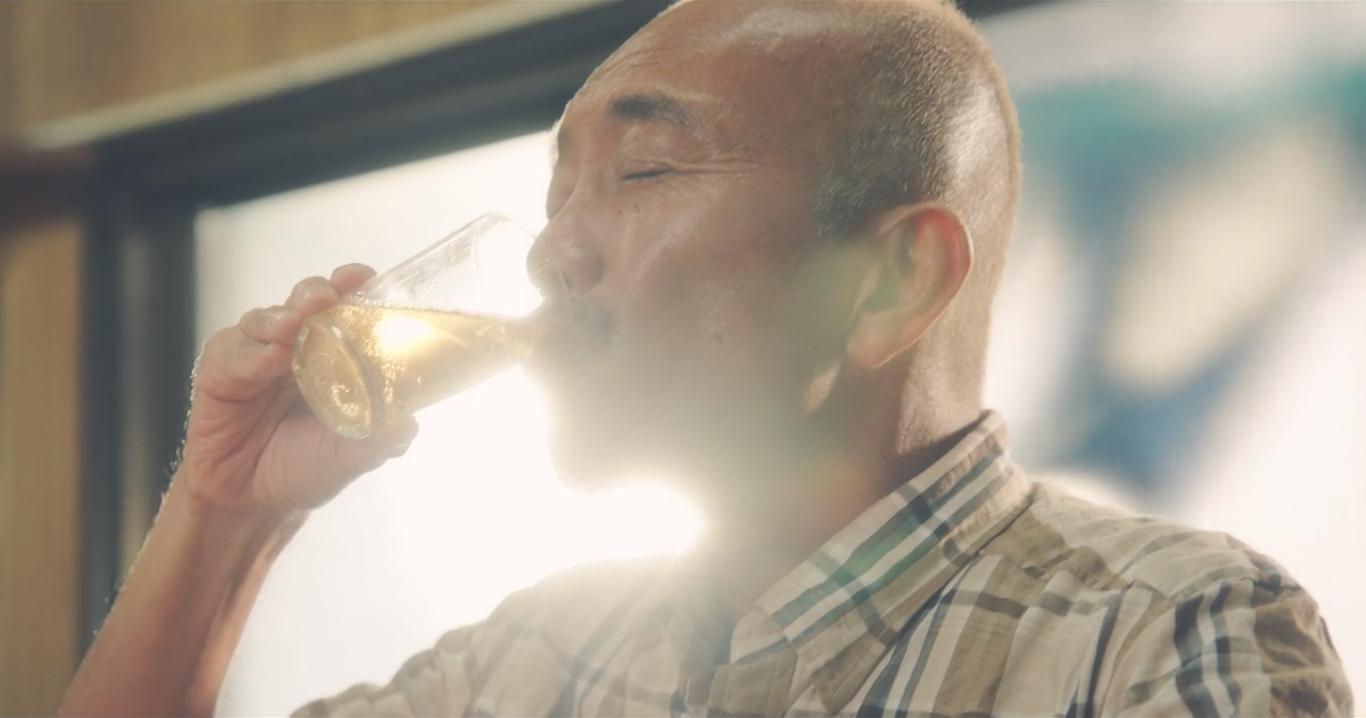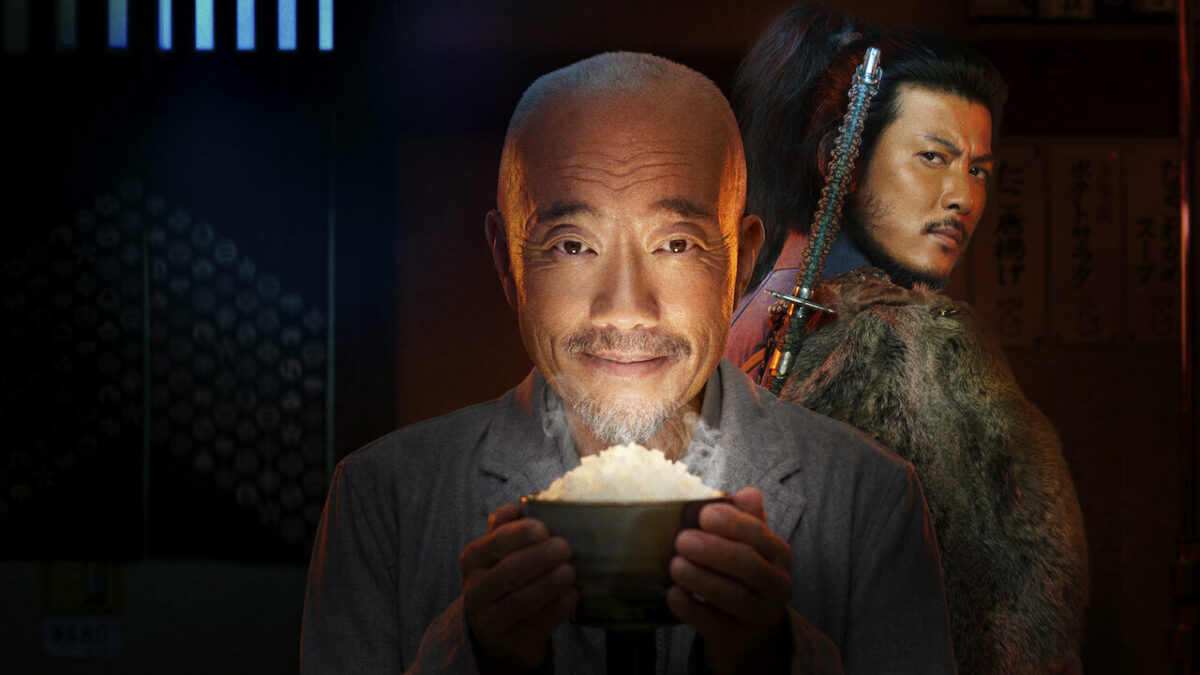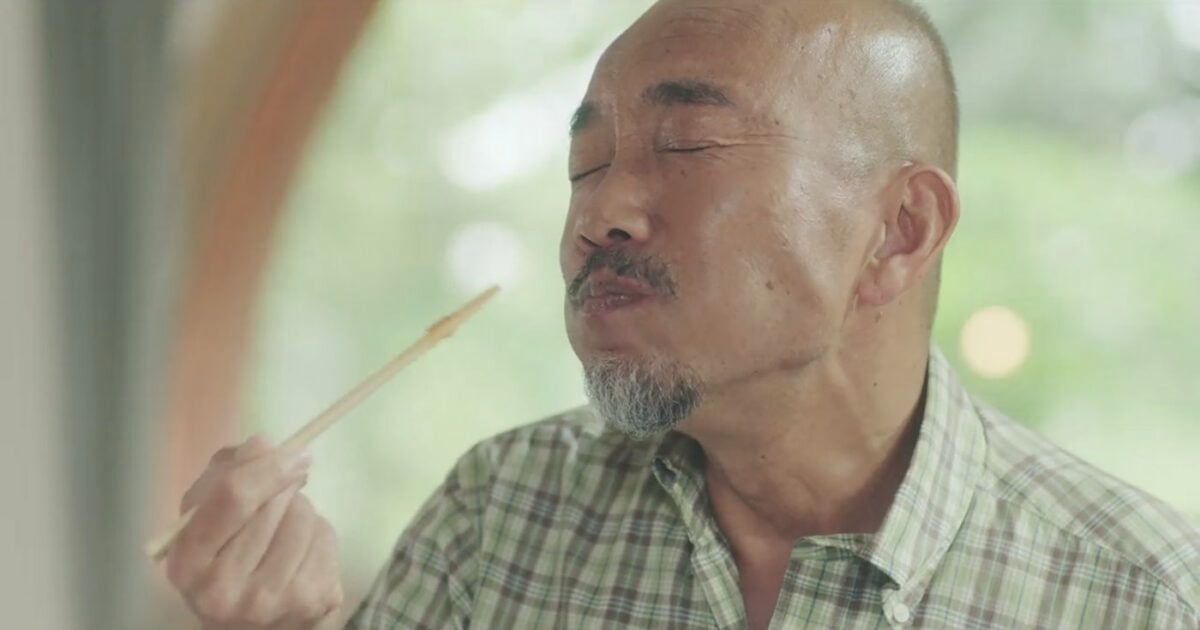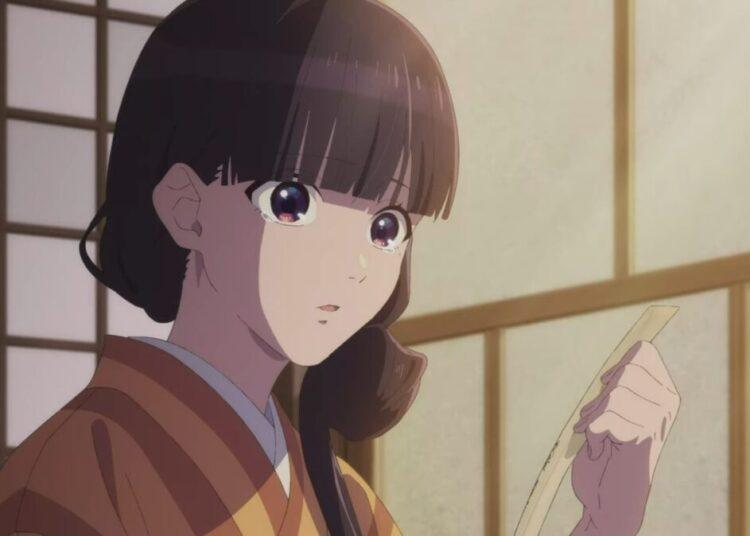I’ve said some mean things on social media about Japan’s attempts to create live-action adaptations of manga and anime in the past. So, for me to say that I absolutely adored this charming slice-of-life series, Samurai Gourmet, about a newly retired man using delicious foods to revisit cherished memories from his past while also re-learning how to savor the occasional, fleeting good moments in the present, is momentous. I hope you can understand the full gravity of that statement.
The first incarnation of this story was an essay written by Masayuki Kusumi who later turned it into a manga. In 2016, Netflix revealed plans to adapt the story into a live-action series that first appeared on the streaming service in March 2017. Samurai Gourmet stars Naoto Takenaka as Takeshi Kasumi. After years as a salaryman, Kasumi is unsure of how he wants to spend his retirement years. Until this point, he’s dedicated his life to work and being responsible, so he finds himself overwhelmed by his newfound freedom. In the first episode, Kasumi wanders around his neighborhood and happens across a diner that he’s never been to before. Popping in for a quick lunch, he soon finds himself tempted to enjoy a beer with his food, but thoughts swirl around his head about what people will think if they see him having alcohol during the day.
This is where Samurai Gourmet introduces its big gimmick that ties each episode together; as Kasumi is sitting there fretting over the potential impropriety of day drinking, he is suddenly transported to a much earlier period in Japanese history when fearsome warriors still roamed the land. There he sees a nameless samurai (played by Tetsuji Tamayama) who knows how to enjoy his freedom to the fullest and drinks his sake freely no matter what time of day it is. Once Kasumi finds himself back in the present, he takes a lesson from the samurai and slowly remembers how to enjoy the little joys that are presented in his day-to-day life, including having a cold beer with lunch.

With few exceptions, this is the rough format of each episode as Kasumi continues to find himself in new situations involving food. Sometimes these situations make him remember fond memories from his youth, such as when he traveled to a small seaside inn with his friends. Other times, these situations are socially awkward, such as when he finds himself seated next to an outspoken, rude man at an izakaya on a rainy day. Regardless of the situation he finds himself in, Kasumi can always count on his personal samurai to help him figure out how to best navigate the situation.
Samurai Gourmet does an amazing job with its food photography, making every dish served look mouthwatering. The food is not the central attraction of this series, however. What makes Samurai Gourmet such an interesting viewing experience is the daily activities of Kasumi and his reactions to each unique dining experience. As mentioned, in each episode the main character finds himself in a new situation that is uncomfortable or nostalgic (it varies from episode to episode) with the drama being what lesson he is going to learn from the samurai in order to cope with the issue at hand.
Sometimes these lessons are not exactly what you would consider an ideal solution to what is happening. An easy example of this being the case is in episode nine when Kasumi treats himself to a couple of fresh croquettes and beer while out running errands. Deciding to revisit a chapter from his youth, he makes his way to the roof of a building (it appears to be a shopping center) where, in the present day, children are watching a Super Sentai show with their parents and having a good time. At first, Kasumi is unsure if he should enjoy his snack in a public place but after being transported and watching the samurai pass out after a Dango and sake snack break, Kasumi follows suit and enjoys his treat and takes a nap on a bench. While I’m certain that this is just a cultural difference, the idea of someone making their way to an area populated by children and passing out on a bench after indulging in a couple of drinks was mildly disconcerting to my western brain. These examples are usually the exception to the rule though, as most episodes end with Kasumi finding a bit of self-confidence and learning to enjoy things in his own way without worrying so much about what is proper etiquette.
My favorite example of this is in episode eight when Kasumi eats in a high-class Italian restaurant. When he first realizes what kind of establishment he is in and the clientele that they attract, he feels enormously out of place. This only compounds as various dishes with incredibly long and detailed names are brought out to him and he thinks about how he can barely process what the server is saying about each piece of the meal. Each time they present something new to him, he cannot fully enjoy it because of feeling so overwhelmingly self-conscious.
When a big plate of spaghetti is finally put in front of him, his anxiety reaches its peak as he struggles to eat it quietly. This is the point where he is transported back in time and witnesses the nameless samurai enjoying his spaghetti loudly, slurping up each large bite with chopsticks as the staff and other patrons (who are also dressed in period garb) attempt to tell him to eat his food “with proper manners.” In response to this, the samurai tells the server that he’ll ruin the flavor with such petty talk and leads all the customers to enjoy their food with loud slurps as well.

Inspired by this, Kasumi asks for chopsticks and stops worrying about what others are thinking about how he enjoys his food. Finally, free of that self-imposed pressure, he revels in the cheese’s flavor against the tomato sauce and enjoys the taste to its fullest. Am I saying that it’s a good idea to always ignore proper table manners? Of course not. Am I saying that maybe you can relax a little if obeying what is “proper” is making you so anxious and unhappy that you can’t enjoy what you’re experiencing at that moment? Maybe. These are the kinds of lessons that Kasumi and the nameless samurai attempt to impart to the audience; primarily, enjoy your life.
Learning little life lessons is only half the story, however, as the nostalgic powers of flavor are also addressed many times throughout the series, leading up to a wonderful season finale. In the closing episode, Kasumi and his wife are cleaning the house when they stumble across some old photos. After seeing one photo, in particular, he rushes out of the house instantly (don’t worry, his wife scolds him later for not finishing the cleaning) in search of a western-style, family-run restaurant from his youth that served hashed beef and rice. After searching in multiple locations, he finally finds it and is taken back to his school years as he savors each bite.

Samurai Gourmet is absolutely a food series, but the point of this series isn’t just that “food tastes good,” but more that “food is powerful.” Everyone on this planet has nostalgic flavors that will take them back in time to certain places or even feelings. A taste so unique that it will be forever linked to certain memories that might be buried deep in their brains. The intention of this series isn’t merely to teach people to enjoy experiences as they happen in their life, but also to revel in the memories and experiences that you’ve had leading up to this point.
Samurai Gourmet is going to be a series that I will return to in the future. Whenever I need a solid reminder that it’s my personal lore that led me to where I am today or that it’s entirely acceptable to be happy when good things happen to me in the present, this series will be there waiting for me. If you’re looking for a gentle slice of life to binge over a weekend (or less), you can’t go wrong with this one.















